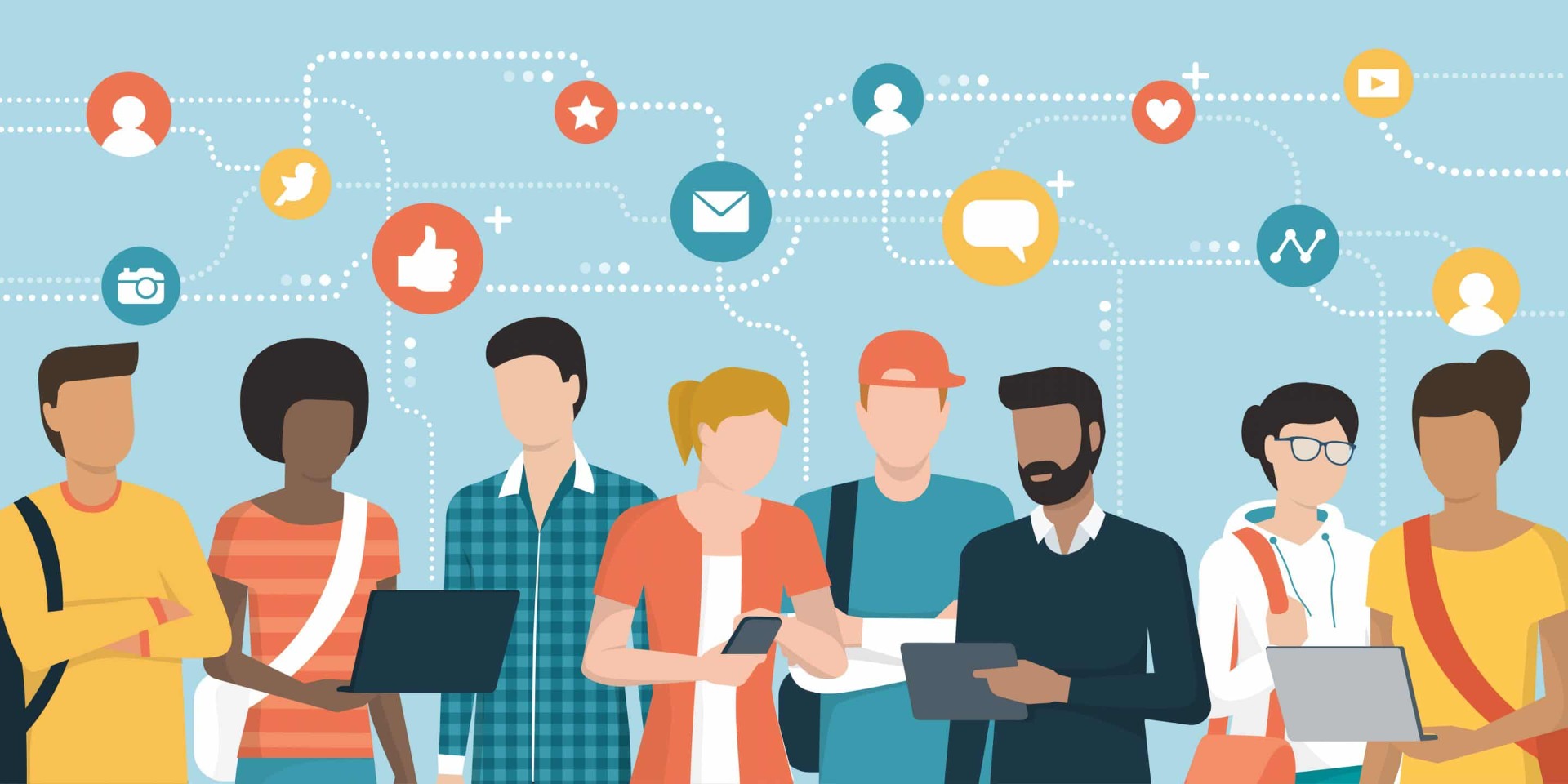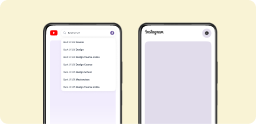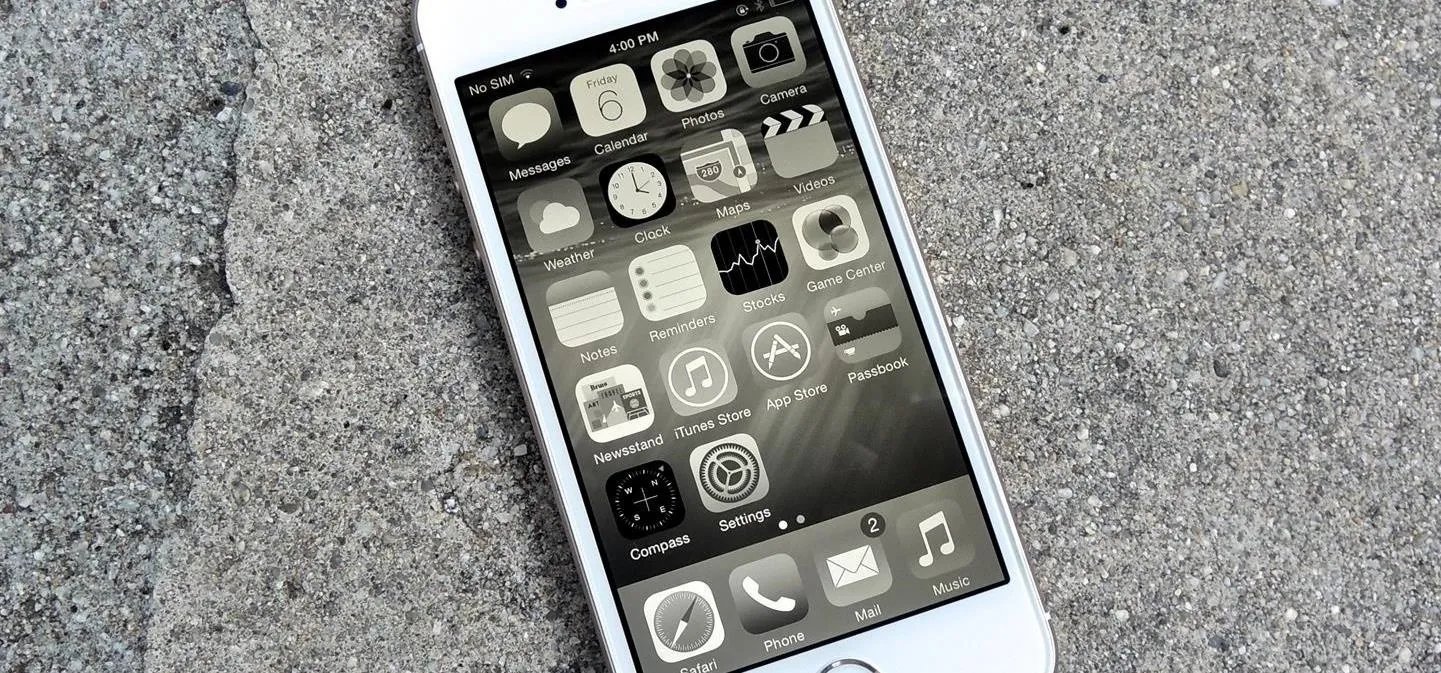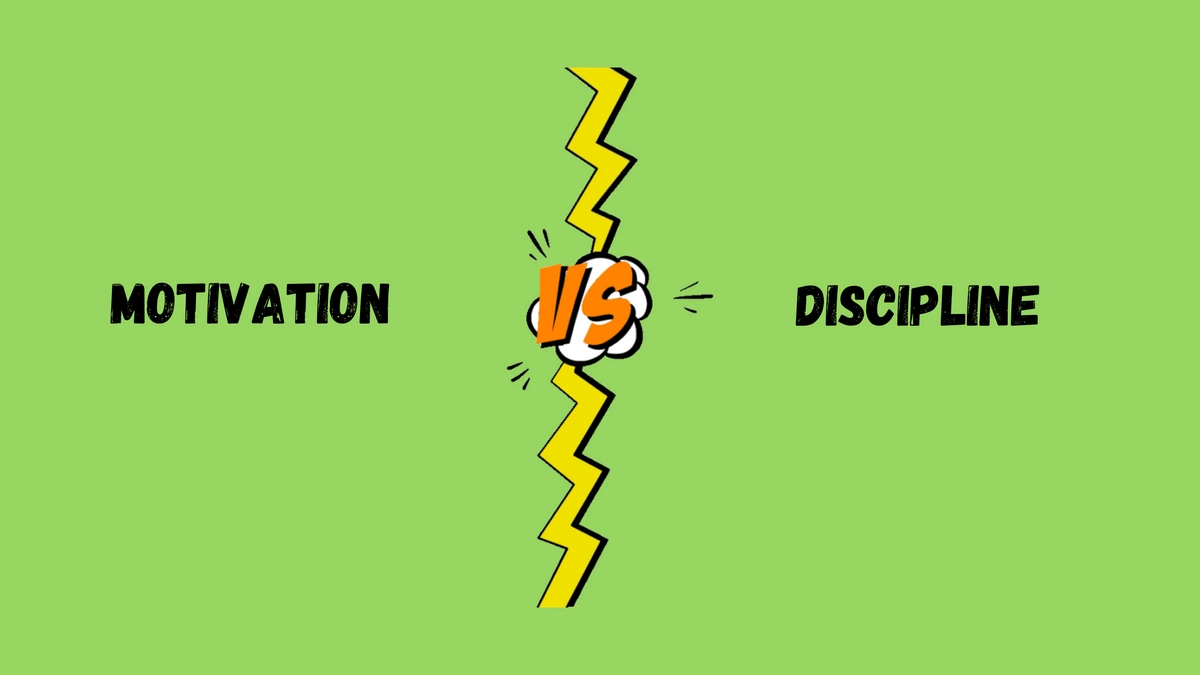Challenges With Social Media
- News and information are not always accurate or true. People often believe things they read online without checking if it is correct. Since anyone can post anything on social media, a lot of the news is fake news. In a study, “MIT researchers revealed that fake news stories are 70% more likely to spread than real news.” So before believing any news on social media, it is best to check with trustworthy sites online to see if the information is accurate.
- Social media can be distracting if used during inappropriate times. Since social media stimulates our brains, it often takes most, if not all, of your attention. So, going on social media during class when you are learning something new, during work when you are not on break, and during plans with your friends and family can be a distraction. When your attention is needed elsewhere, it is best not to scroll through your social media feed to ensure that you are focused on the moment.
- Social media can be addictive. Because it is designed to be addicting, it can be hard to remove yourself from social media, so you spend more time on the platforms. For this reason, people often spend hours upon hours scrolling through their feeds. This excessive time spent on social media can interfere with school, homework, work, and even plans with friends and family.
- Social media can lead to fatigue and poor sleep. Since social media is addictive, it can be hard to put it away, even when it is time to sleep. Being on your phone at night can cause you to go to bed later and even reduce the quality of your sleep with the urge to wake up and check your phone throughout the night. Recent research has “found that the more time adolescents spent on screen-based activities, the more trouble they had falling asleep and the less sleep they got during the night.”
- Social media makes it easier to be less kind. Social media can reduce the feeling of human connection since all communication is through a screen instead of face to face with another person. These detached feelings of talking to a screen can also lead to people feeling less accountable for their words and actions on social media since it reduces the personal aspect. So ultimately, this can lead to people posting rude comments and posts that they likely would not say to another person’s face. Remember, even when on social media, you are still a person communicating with other people who have a heart and feelings.
- Cyberbullying occurs on social media. Since social media makes it easier to be rude online, cyberbullying does occur on social media. Cyberbullying can be destructive to the mental health of the victims and can even lead to victims attempting to commit suicide. A recent study “concluded that victims of cyberbullying are twice as likely to attempt suicide or engage in acts of self-harm. Additionally, recent statistics reveal that 59% of U.S. teens have been bullied or harassed online.” So, it is important to be kind when doing anything on social media, and if you are a victim of cyberbullying, tell someone you trust and get help as soon as possible.
If social media harms your mental health, it may be time to quit. Learn more about why it may be time to quit social media.
Benefits of Social Media
- Social media can connect you with peers. Social media can keep you in touch with your peers outside of the classroom so you can make plans with one another. Also, messaging with peers on social media can allow you to work on projects together, get help with homework, get updates when you miss a day and stay informed on everything happening in the classroom.
- You can use social media to create a class group chat. Having a class group chat allows the class to stay connected outside of the classroom. Also, a group chat can help students stay informed about tests, quizzes, assignments, and projects. A group chat can also be a resource for group collaboration on projects, group study sessions, and getting help from your peers if you have questions.
- Social media can help with schoolwork. With so much content shared constantly, social media can be a place for inspiration for school projects or assignments. As well, platforms like Youtube have a lot of educational videos on a wide variety of subjects. So, you can use Youtube to find information for assignments or explain concepts that you struggle with or find confusing. But first, verify that all information you use from these videos is accurate and make sure you are watching videos from educated and trustworthy people.
- Social media is an outlet for personal expression. Social media encourages self-expression and creativity by posting and sharing videos and pictures. In a study, teenagers reported that “using social media strengthens their friendships, allows them to express themselves more easily and makes them feel more connected.” With many rules imposed on them at school, some students may not be able to express themselves at school. However, as long as used responsibly, social media is a great outlet for self-expression for students.
- You can find help and tips for mental health. Unfortunately, mental health still has a stigma, making it hard to talk to people about it in person. However, talking about mental health online can be easier since your phone detaches you from a personal connection. In this situation, detachment from others alleviates some pressure. So, social media is a place where people can turn to talk about their mental health and get help easier. Also, there are many accounts dedicated to educating and helping people with mental health. These accounts can be a place to start learning about your mental health and not feel alone in your problems. Also, these accounts can help motivate you during your bad days and give you tips on how to help make even your worst days a bit better.
- Social media can keep you connected with world events. From Instagram to TikTok, almost all social media platforms share local and world news. This easy accessibility to news can help you stay connected with current events, but only if it is not fake. To verify that the information is accurate, make sure the news is coming from trustworthy sites and do a google search to see if other reliable sites are reporting the same information.
How To Be a Responsible Social Media User:
- Posts can travel fast and far on social media, so only post things you can be proud of saying. You can do this by using the following checklist:
- Would I like it if someone said this to me? If not, then don’t post or comment on it.
- Is this spreading positivity or negativity? If it spreads negativity, then don’t post it.
- Would I say this to someone face to face and feel good after saying it? If not, then don’t post it.
- Many jobs will do social media screening, so make sure what you are posting is appropriate for your boss to see. If it is not, make sure your account is private. But whether private or not, you should still make sure your posts are not offensive.
- Remember, your pictures on social media are public domain. Public domain means that anyone can see or use your pictures unless you have privacy settings activated. So, only post content that you are okay with the public seeing and sharing. Also, make your account private to limit how many people can see and share your posts.
- Remember unfollowing, blocking, and reporting are options for a reason! I know it can feel mean to use any of these options on social media, but there are valid reasons to use them.
- Unfollowing: You should unfollow people who are negatively impacting your mental health. It is a good idea to unfollow people to who you compare yourself and whose content harms your mental health. Unfollowing is a good option for people whose feed you no longer want to see, but you do not care if they see your feed.
- Blocking: Block anyone that you do not want to see your feed and whose feed you do not want to see. You should block cyberbullies and anyone else who intentionally is trying to harm your mental health.
- Reporting: You can report someone’s post or profile. If you believe that the person does not follow that platform’s guidelines, you can report their profile, but if it is just the post that is the problem, then you can report the post.
- Keep yourself safe by keeping your account private and only allowing the people you know to follow you. Just like how not everyone in the world is good, not everyone on social media has good intentions. If you do not know them, don’t trust them! There is no need to have strangers on your social media, so only let the people you know follow you to keep yourself safe.
- Follow accounts that make you feel happy. Your social media account is for you, so only follow people and accounts that make you feel good. By following only people who make you happy, you will optimize your feed so that scrolling through your feed will bring you joy.
- Know when to use your phone and when not to. When you need to focus at school or work, it is probably not the time to be on social media. Also, when you need to focus on your schoolwork or your friends, you should not be on social media. If you have a hard time staying off that addicting feed when it is time to focus, BeTimeful can help.
BeTimeful takes away your distracting feed while allowing you to stay connected with your peers, friends, and family. BeTimeful is more than a website blocker as it takes away your distracting feed while permitting you to use the messaging function on social media. So download BeTimeful today to reduce the distraction of social media feed when it is time to focus while allowing those important and helpful messages to come through.
BeTimeful also has many other resources to help you become your best self:
- Discover the best productivity tips
- Learn how to stay motivated
- Discover top productivity coaches
- Find top time management tools
- Discover ways to stay focused
- Learn about why you can't focus
- How to remove Instagram Feed or how to remove YouTube shorts.
Sources:
- “How Fake News Goes Viral: When FYI Becomes TM.” Academy 4SC, https://academy4sc.org/video/how-fake-news-goes-viral-when-fyi-becomes-tmi/?utm_campaign&hsa_acc=2755491261&hsa_grp=126903344121&hsa_ver=3&hsa_tgt=kwd-959195339222&hsa_cam=13436211581&hsa_mt=b&hsa_net=adwords&hsa_kw=disinformation%20on%20social%20media&hsa.
- “Sleep & Social Media: Staying Connected Can Keep You Up.” Sleep Foundation, 22 April 2022, https://www.sleepfoundation.org/how-sleep-works/sleep-and-social-media
- “Teens say social media give valuable source of self-expression.” Daily Pioneer, 31 January 2019, https://www.dailypioneer.com/2019/state-editions/teens-say-social-media-give-valuable-source-of-self-expression.html.
- “What are the effects of cyberbullying?” Kaspersky, https://www.kaspersky.com/resource-center/preemptive-safety/cyberbullying-effects.






